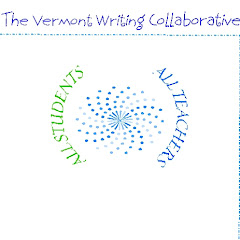I'm looking for some feedback and advice.
My eighth grade students have been studying the Holocaust through close reading of Night. At the begining of the unit I decided I wanted the students to write poetry at the end so that we could work on capturing the intense emotion of the novel. Throughout the book, students have noted the purpose of word choice as well as the symbolism infused in the writing. The have looked at infering meaning and motivation.
Now it is time to write! I provided my students with copies of four or five poems from I Never Saw Another Butterfly as well as the rap son, Never Again. I had them discuss each poem in their small groups in order to discover the author's purpose. I now want them to create a rubric for the poems they will write.
I have attempted class rubrics before, without a ton of success. Has anyone out there accomplished this? How do you initiate it? I have tried whole class discussion where five or six intensively particpate, ten more add small comments, and the other five or six are existing but not engaging. I have attempted small group approaches where each small group develops a rubric, but this becomes difficult to make into a large group rubric. I have also attempted writing at the individual level first, then sharing as a large group.
What works for you? Any advice would be greatly appreciated.
Thanks!
Tammy
About VWC
The Vermont Writing Collaborative is a group of teachers in Vermont (and elsewhere!) whose mission is to help all students, K - 12, write thoughtfully and effectively.
The five founding members are: Jane Miller of Burlington, Karen Kurzman of Derby Line, Eloise Ginty of Thetford, Joey Hawkins of Strafford, and Diana Leddy of Strafford. Among us, we have over 130 years of public school teaching experience at all grade levels.
In the fall of 2008, we published a book through Authentic Education (with a foreword by Grant Wiggins) called Writing for Understanding:Using Backward Design to Help All Students Write Effectively.
Since then, we have offered courses and workshops in the principles of Writing for Understanding around Vermont, Rhode Island, New Hampshire, and elsewhere.
The five founding members are: Jane Miller of Burlington, Karen Kurzman of Derby Line, Eloise Ginty of Thetford, Joey Hawkins of Strafford, and Diana Leddy of Strafford. Among us, we have over 130 years of public school teaching experience at all grade levels.
In the fall of 2008, we published a book through Authentic Education (with a foreword by Grant Wiggins) called Writing for Understanding:Using Backward Design to Help All Students Write Effectively.
Since then, we have offered courses and workshops in the principles of Writing for Understanding around Vermont, Rhode Island, New Hampshire, and elsewhere.
Welcome, VWC members!
June, 2011 - what a grand Summer Institute! We held four different strands, and had the honor of working with both old friends and new ones. It was a joy!
Teachers are working on a whole new batch of Writing for Understanding sequences, and those will begin appearing here. If you're a course participant, thanks for posting and giving your thoughtful feedback.
If you're a VWC follower, your feedback is most welcome as well!
Teachers are working on a whole new batch of Writing for Understanding sequences, and those will begin appearing here. If you're a course participant, thanks for posting and giving your thoughtful feedback.
If you're a VWC follower, your feedback is most welcome as well!
Tuesday, February 2, 2010
Subscribe to:
Post Comments (Atom)

Tammy, I usually don't have students make rubrics for writing (though I do for other things)...however, I think I'd connect it to other writing rubrics, since all writing needs to include a focus/controlling idea (stated or implied), an organizational pattern that makes sense, details (could be mostly images in poetry, but not necessarily) and an appropriate voice for the message/focus of the poem. In addition (and this could be part of "voice") poetry often (though not always) uses a rhyme or pattern/rhythm scheme to contribute to its overall effect. Maybe having kids take a few effective published poems and, and as a group with teacher guidance, having them analyze what makes the poem work, would help. If you did that with a few, you could help them recognize the common elements (focus, details, etc) so they could come up - as a group - with a rubric.
ReplyDelete